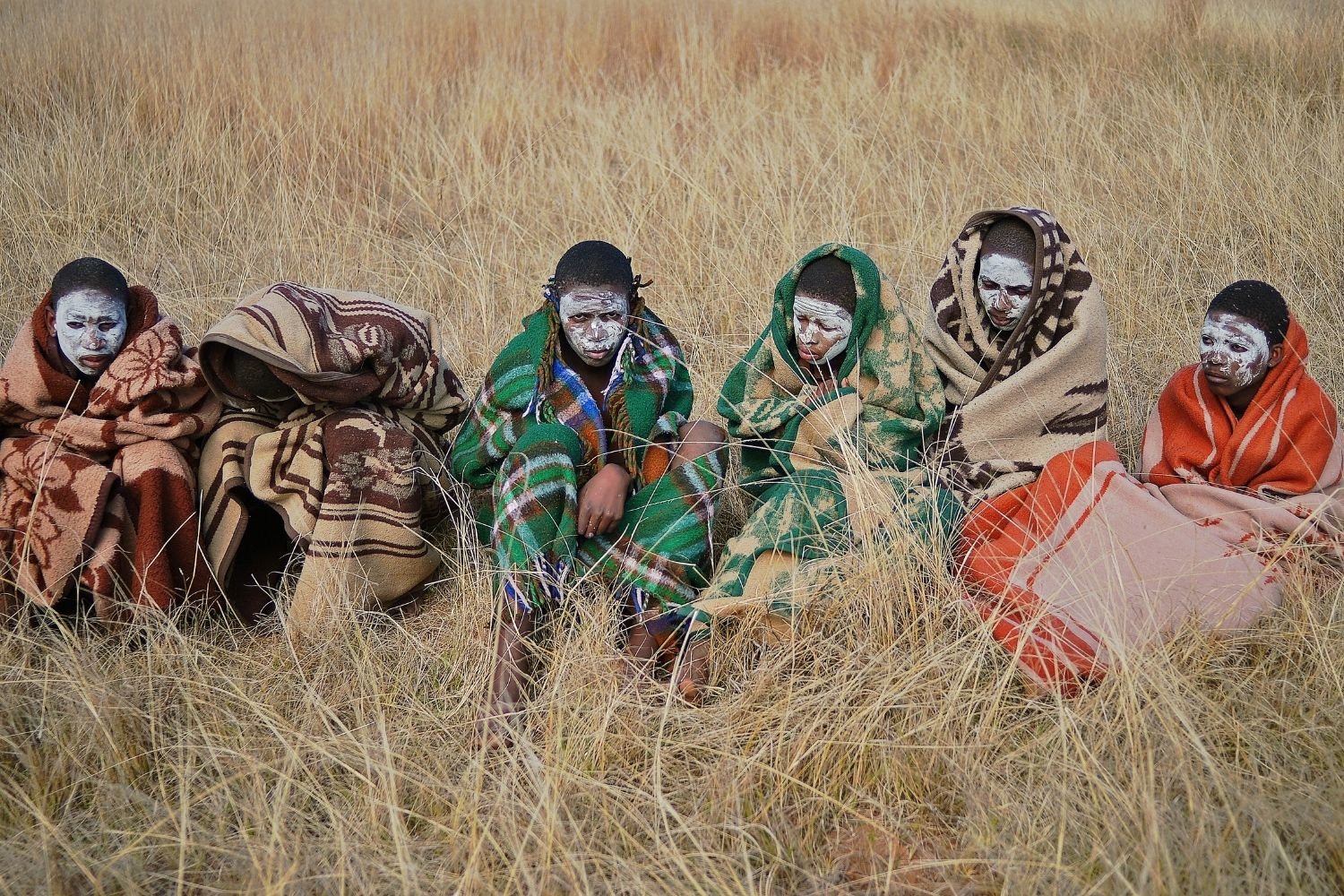A traditions expert says government interventions to curb initiation deaths are only good on paper.

Xhosa boys who have undergone an initiation ceremony sit near Qunu, Eastern Cape, on 30 June 2013. Picture: CARL DE SOUZA / AFP
The perennial deaths of dozens of young boys in the name of the transition to manhood has put the future of the practice in the balance and cast doubt on the efficacy of various interventions to curb the carnage.
The death toll for the current initiation season, which began on November 12 in the Eastern Cape, has so far reached 36. Dozens more have been hospitalised as calls grow louder for the establishment of special courts to tackle illegal initiation schools.
This as preparations begin for the winter initiation season – mostly held after three years – of AmaNdebele and BaPedi people in Mpumalanga and Limpopo.
The AmaNdebele initiation season was due to take place last year but was derailed by Covid-19 lockdown regulations, which imposed a temporary ban on male customary initiation.
The Mpumalanga House of Traditional Leaders (HTL) says it is yet to decide whether boys will be sent to the mountain in the next year’s winter initiation season.
iKosi William Fene Mahlangu, a member of the provincial HTL’s traditions, customs and culture committee, said they were in the process of compiling and delivering a mitigation plan to the Department of Cooperative Governance and Traditional Affairs (Cogta) for assessment.
He said although the plan should have been submitted by now, they were working tirelessly to ensure that the plan was in place by the end of January.
“The plan lays out the way we intend to run the initiation. [Cogta] will then assess the plan, which we are happy about, and then decide whether to approve it or not. But we are confident it will be approved,” Mahlangu said.
He said the Ingoma Forum‚ a group of medical doctors and health practitioners who have gone through the rite of passage‚ was also part of the plan to ensure a safe initiation season.
In 2014, Mpumalanga’s department of health said 57 traditional surgeons were trained by the forum and 30,148 were covered by the forum. There were, however, still 31 deaths recorded.
In 2013, a report into the deaths of 29 initiates in Mpumalanga found that gross negligence by traditional surgeons and drug withdrawal symptoms contributed to the deaths.
In the April 2017 initiation season, at least 11 initiates died at various initiation schools in KwaMhlanga, Mpumalanga.
Parliament’s portfolio committee on cooperative governance and traditional affairs has previously expressed concern that tragedy continues unmitigated despite its recent series of engagements with the relevant male customary initiation role players, both nationally and provincially, in a bid to hold those responsible to account.
Cogta spokesperson Lungi Mtshali said in statement that the committee would continue to intensify oversight over the implementation of the Customary Initiation Act, which came into effect in September this year.
The Act provides for the establishment of national and provincial initiation oversight structures, which the ministry said would be a critical intervention in the male customary initiation crisis.
Ndebele traditions and customs expert Khuluma Ndabezitha, however, said government interventions were only good on paper.
He said the biggest stumbling block was the lack of cooperation with government structures and not adhering to regulations.
“We tend to do things our own way, in the name of keeping the practice sacred, but people are dying. Things have changed and we need to also change our mindset and work with government to protect this practice or it will die,” Ndabezitha said.
siphom@citizen.co.za
Download our app




